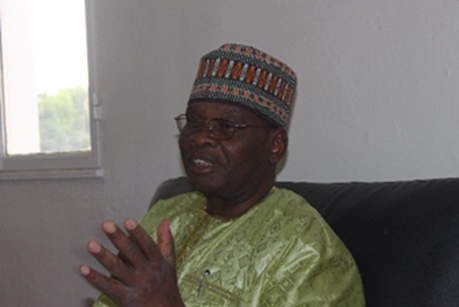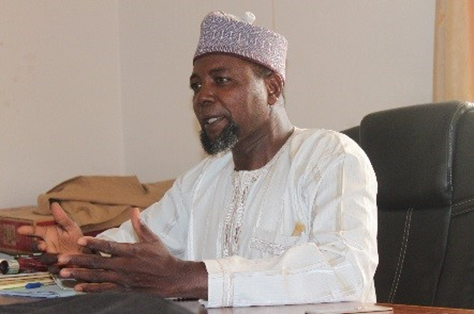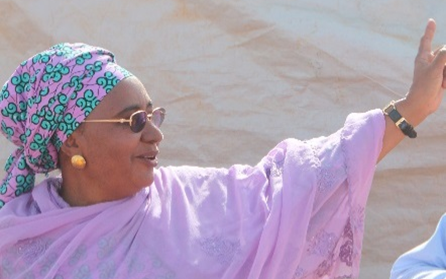By Lucie Amadou and Stephanie Benedict
Imagine dropping your children off at school, only to find no teacher in their classroom.
For too many Nigerien parents and students, this has been a reality. Many residents of rural communities in Niger are upset that the government has not provided enough teachers to staff their schools, failing to meet even its own mandate of just one teacher for every 50 students.
This frustration reflects Nigeriens’ broader concerns about the adequate and equitable resourcing of the country’s education system. Teachers have resisted serving in rural schools. Too often, teachers have failed to report to their assigned posts, or they have used unofficial channels to gain unauthorized transfers to urban school districts. The Niger Ministries of Education has lacked effective controls, particularly at the community level, to enforce teachers’ compliance with staffing assignments.

Dr. Daouda Mamadou Marthe, Minister of Primary Education, supported the multi-stakeholder approach to reforming the teacher deployment system.
To understand the scale of Niger’s problem, consider that 49 percent of Nigerien citizens are under the age of 15.(1) More than 10 million children are at risk of missing even a primary education. The broken teacher staffing system posed an existential threat to the country’s future development.
Securing a seat at the table for citizens
Under the USAID-funded Participatory Responsive Governance—Principal Activity (PRG-PA) program, Counterpart International and our local partners worked in partnership with two education ministries to include civil society in the design and implementation of significant reforms to the teacher assignment system. While the ministries had taken steps to begin to address the inequities, prior to our involvement, their activities lacked cohesion and neglected to include the families and communities directly affected by the teacher staffing shortage. Real and sustainable solutions to local problems require the voice and leadership of local citizens.
Though at first reluctant, the ministries ultimately invited members of the Niger National Association of Parents, education civil society organizations, and teacher unions to join their committees. Representatives from the Ministries of Civil Service and Finance also took part.

Mr. Ibrahim Yahouza, General Secretary, Ministry of Primary Education, valued civil society’s role in the reform process.
And it didn’t take long for the government ministries to recognize the impact.
“Counterpart’s role in serving as a catalyst for the creation and support of the joint committee and the individual ministerial committees was critical to elaborating this policy reform,” said Mr. Ibrahim Yahouza, General Secretary, Ministry of Primary Education. “I value Counterpart’s success in persuading us to include outside and community stakeholders,” he added.
Significant reforms, developed and agreed to by the larger, more inclusive group of stakeholders are now public and pave the way for equitable delivery of education services across the country. These reforms include:
- Clear, objective, and transparent criteria for assignments and transfers, including consistent standards for professional qualifications for school directors and teachers;
- Decentralized decision-making down to the community level; and,
- Public-private partnerships for internal and external evaluation of the entire teacher deployment process.

Ms. Salissou Fati Khamis, Ministry of Primary Education school inspector for the Niamey Commune I, is eager to implement the reformed policies in her schools.
Government education inspectors, parent associations, civil society organizations, teacher unions, and the local elected councils all came together in an unprecedented way to identify teacher needs. Going forward, these inclusive commissions will recruit teachers for primary schools and monitor teacher presence and performance.
Ms. Salissou Fati Khamis, Ministry of Primary Education school inspector for the Niamey Commune I, is eager to implement the reformed policies in her schools.
“I am happy to hear of the policy reform and oversight program for assignment and transfer of teachers,” said Ms. Salissou Fati Khamis, the Ministry of Primary Education school inspector for the Niamey Commune I. Ms. Khamiss tried for years to address the widespread lack of teachers in the rural schools in her commune, and was “elated” when the ministry informed her of the new reforms.
“The delegation of authority for recruiting teachers to the community level will finally provide an effective solution,” she added.
This achievement marks a watershed movement toward the project’s ultimate goal of improving education for all Nigeriens.
(1). United Nations Population Division, (DESA), World Population Prospects 2017. https://esa.un.org/undp/wpp




